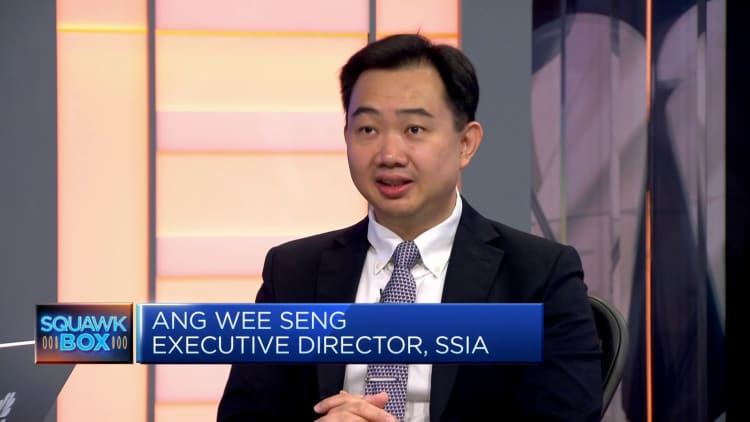Singapore keen on ‘talent exchange’, developing AI ‘guard rails’ with the US
Countries should work together to develop guidelines to ensure that AI is developed and applied in a safe and secure way, Minister Gan Kim Yong says
Published Thu, May 2, 2024 · 09:00 AM
Singapore Economy
In the global race to regulate AI, Singapore is eager to collaborate with the US to jointly develop a set of rules, given the latter’s position as a forerunner in the field, Minister Gan says. PHOTO: MINISTRY OF TRADE AND INDUSTRY
- In the global race to regulate AI, Singapore is eager to collaborate with the US to jointly develop a set of rules, given the latter’s position as a forerunner in the field, Minister Gan says. PHOTO: MINISTRY OF TRADE AND INDUSTRY
- In the global race to regulate AI, Singapore is eager to collaborate with the US to jointly develop a set of rules, given the latter’s position as a forerunner in the field, Minister Gan says. PHOTO: MINISTRY OF TRADE AND INDUSTRY
- In the global race to regulate AI, Singapore is eager to collaborate with the US to jointly develop a set of rules, given the latter’s position as a forerunner in the field, Minister Gan says. PHOTO: MINISTRY OF TRADE AND INDUSTRY
- In the global race to regulate AI, Singapore is eager to collaborate with the US to jointly develop a set of rules, given the latter’s position as a forerunner in the field, Minister Gan says. PHOTO: MINISTRY OF TRADE AND INDUSTRY
[WASHINGTON] SINGAPORE is exploring the possibility of a talent exchange programme in fields such as artificial intelligence (AI) with the United States, said Trade and Industry Minister Gan Kim Yong.
“We are looking at how we can have talent exchange to continue to attract AI talent,” he said in an interview with the Singapore media at the end of his visit to Washington, DC, on Wednesday (May 1), adding that discussions are “making good progress”.
“We do need a lot of talent that is professionalised in the AI area, and then over time, we also need to invest in training our workers to be AI-enabled,” he said.
Last December, the Singapore government announced plans to
triple its AI talent pool to 15,000 practitioners over five years.
In the global race to regulate AI, Gan said Singapore is eager to collaborate with the US to jointly develop a set of rules, given the latter’s position as a forerunner in the field.
“The US is also a leader in AI, and therefore, we are very keen to work with the US to see how we can jointly develop this set of guidelines and guard rails,” he said.











